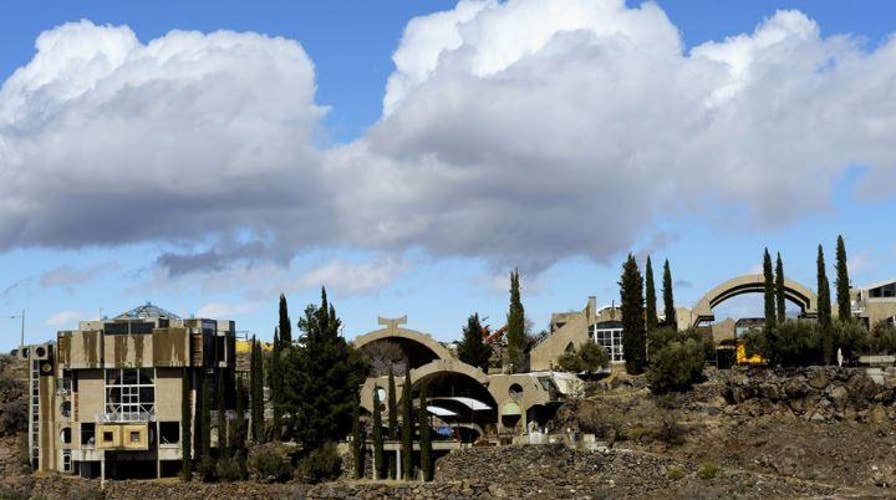Unfinished futuristic city becomes a tourist site and concert venue
The city in the middle of Arizona’s Sonora desert isn’t deserted, but only a small amount of the blue print made it past the drawing board.
In the middle of Arizona's desert lies something unexpected: a rather strange, unfinished "city of the future."
Jutting out of the vast, barren Sonoran Desert and reachable only by car, Arcosanti's domes and curved structures look like something imagined up by a science fiction writer.
There's one big problem, however: The project is reportedly only 5 percent complete.
DOGS MIRROR STRESS LEVELS OF THEIR OWNERS, STUDY SUGGESTS
A nonprofit group called the Cosanti Foundation has been working for decades to create a city that would inspire the future of urban design by incorporating a range of environmentally-friendly features to reduce sprawl and minimize the need for cars while harnessing solar power and natural vegetation to energy reduce costs.
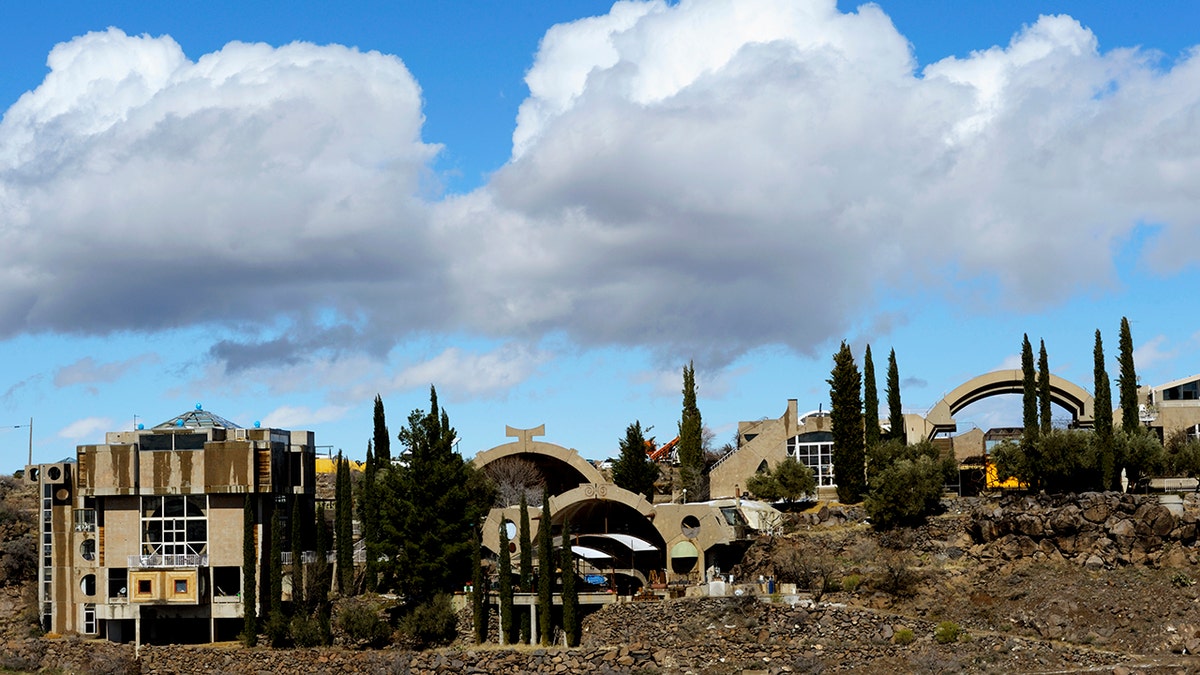
A view of Arcosanti, a futuristic city that has never been finished, is seen above. (Getty Images)
The Italian architect who originally envisioned the city, Paolo Soleri, called his ideas "urban implosion" because he wanted to reduce the suburban sprawl that is a feature of many American cities. He also invented the concept of Arcology, a way of thinking about urban design that's in harmony with the natural world and more sustainable.
Even though other architects and countries have surpassed Soleri's goals – especially in Asia and the Middle East – his notions about local food sourcing, solar energy, eco-friendly living and walkable neighborhoods are now part of mainstream urban design.
Each year, 50,000 people visit Arcosanti, according to Architectural Digest, but only about 80 residents call the city home. Some of those visitors are urban design students taking class trips, while others are people attending concerts and events held in Arcosanti's large amphitheater.
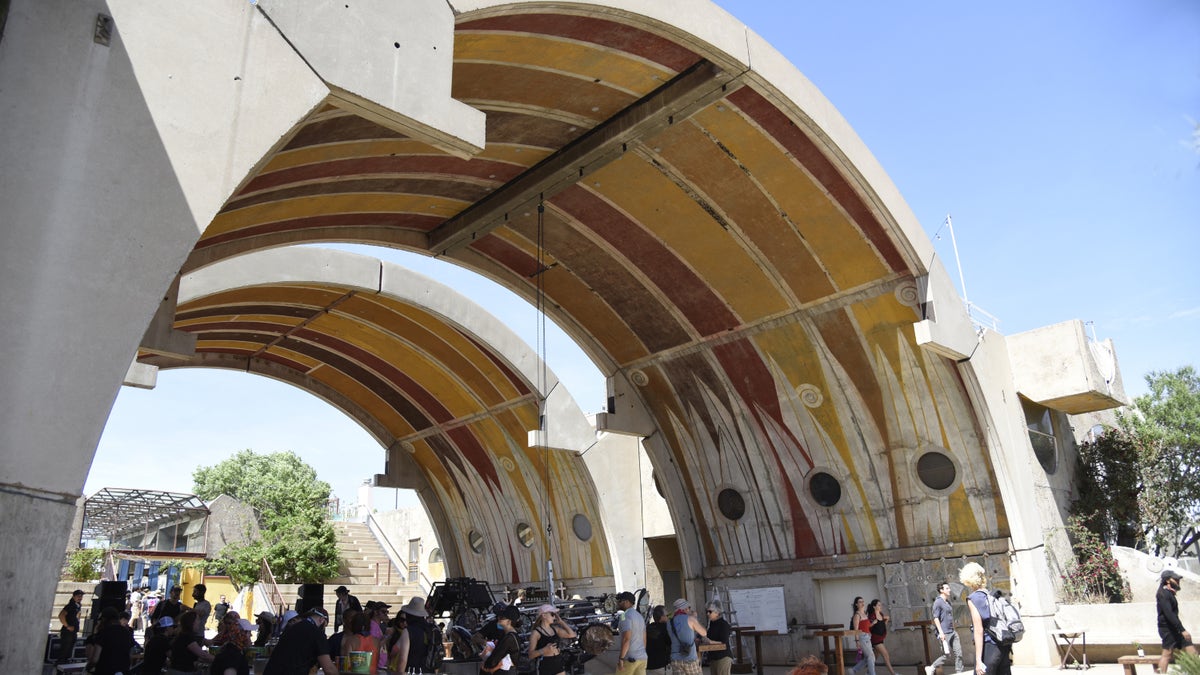
The atmosphere during 2018 FORM Arcosanti on May 11, 2018, in Arcosanti, Arizona. (Photo by Tim Mosenfelder/Getty Images)
10 INCREDIBLE TECHNOLOGIES DEVELOPED FOR D-DAY
According to ScienceAlert, many of the architect's ideas were too costly to implement, leading to a loss of funds, the slowdown of construction on the site, and eventually, a number of residents simply left.
In early 2013, not long before Soleri's death, a writer from Vice stayed at what the outlet dubbed the "futuristic hippie commune."
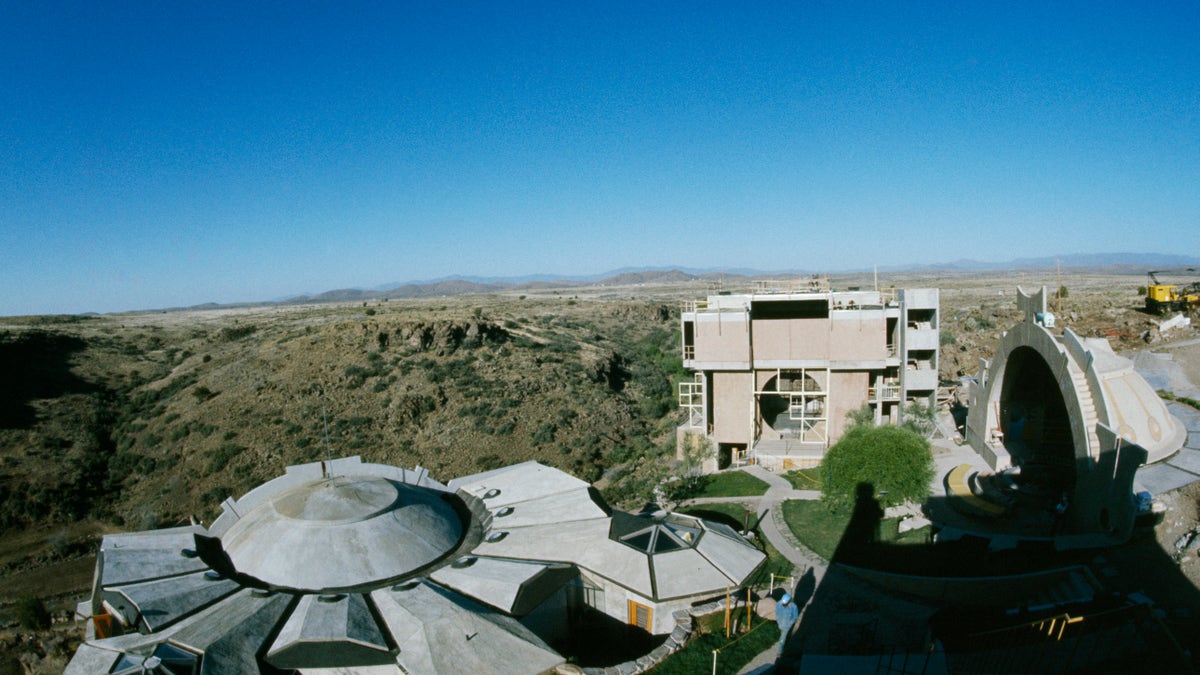
Building the City of Arcosanti (Photo by Tony Korody/Sygma/Sygma via Getty Images) (Getty Images)
After first being scared by some strange graffiti in the room and being unable to fall asleep, the writer notes that the development "looked about a billion times less scary in the daylight."
Construction began in 1970, but a new building has not been completed since 1989, Vice reports.
YOUTUBE CRACKDOWN BLOCKED HISTORY TEACHERS FROM SHARING ARCHIVAL VIDEOS OF HITLER
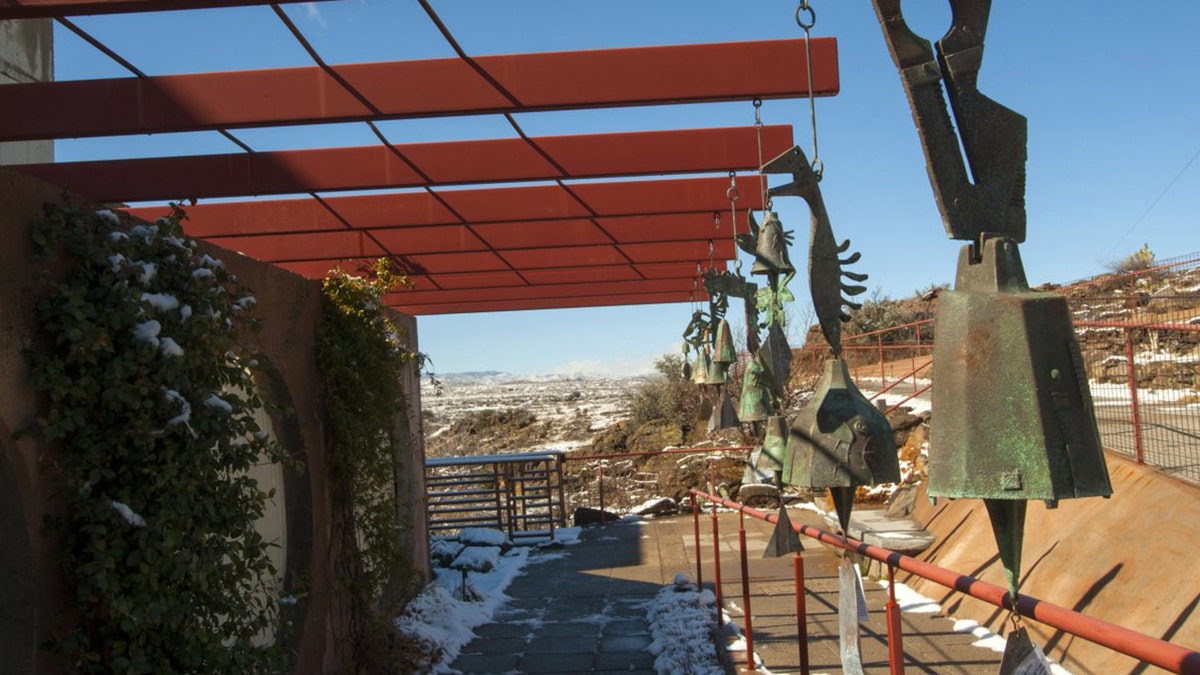
Arcosanti's visitor center in the Arizona desert is seen above. (Getty Images)
"The original people working there either got frustrated and left, or stayed there and got older and settled into their cozy, Soleri-designed apartments to live a pleasant, hippy-dream life," James McGirk, a former attendee of an Arcosanti workshop, told Wired.
